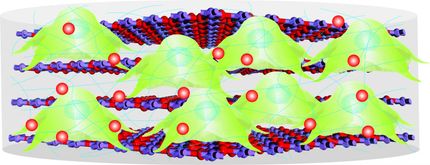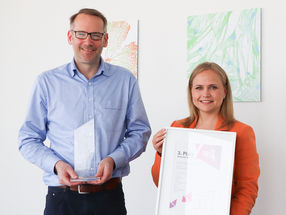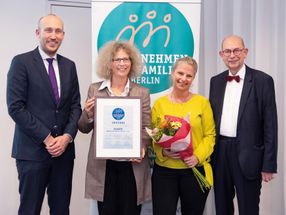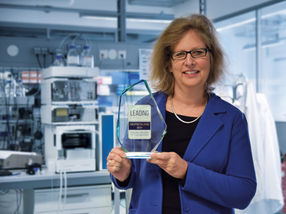Rensselaer Announces $1.59 Million Commitment to Biomolecular Training
NIH Grant Establishes Program to Train Next Generation of Researchers
Advertisement
TROY, N.Y. - Rensselaer Polytechnic Institute today announced a new $1.59 million commitment to train doctoral students in biomolecular science and engineering, supported by a $780,000 grant from the National Institutes of Health (NIH) combined with $814,000 in matching funds from Rensselaer. The interdisciplinary program involves the departments of biology, biomedical engineering, chemistry and chemical biology, and chemical and biological engineering.
"This biomolecular training initiative establishes Rensselaer among a select group of schools nationwide that offer training for a new generation of researchers in one of the most promising fields of medical discovery," said Rensselaer Provost G.P. "Bud" Peterson. "In making this award, the NIH recognizes Rensselaer's leadership in this area and our ability to offer high quality interdisciplinary educational programs in biotechnology. This is another example of our expanding focus on biotechnology as we prepare to open Rensselaer's new Center for Biotechnology and Interdisciplinary Studies in September."
The field of biomolecular science and engineering integrates advances from several disciplines to develop new procedures and devices for better health care. The new funding will provide biomolecular training for six Ph.D. candidates annually. The program, which begins in the fall semester 2004, will be conducted jointly with the Wadsworth Center of the New York State Department of Health and will involve 20 faculty from both institutions. Supervisory committees will identify and recruit students into the program.
"This program will usher in a new era in graduate training at Rensselaer and provide Ph.D. students with a framework for state-of-the-art research and education at the interface of life sciences and engineering," said Jonathan Dordick, the Howard P. Isermann '42 Professor of Chemical and Biological Engineering at Rensselaer, who is the principal investigator and co-director of the program. "The core of what we do is to train students to do high powered research. NIH recognizes the need to support this, especially when the interaction among biologists, chemists, and engineers is ensured. The biotechnology training grant program is ideally suited for such interaction."
Training will be offered in the fields of biocatalysis and metabolic engineering (using nature's catalysts to synthesize compounds of pharmaceutical and industrial importance), computational biology and bioinformatics (elucidating the function of mammalian and microbial genomes), tissue engineering and regenerative medicine (engineering cell growth to regenerate human tissue), and integrated systems biology (understanding the complex interplay among cellular constituents).
"I have been fortunate in having co-mentored several Rensselaer chemical engineering graduate students over the years. They have brought many new perspectives into my lab, while they were being trained in molecular genetics and recombinant DNA technology. We shared the excitement of exploration and discovery at the interface of very different scientific disciplines. This grant promises to extend the cross-disciplinary training experience to a much broader area of biomedical science and engineering," said Marlene Belfort, Wadsworth Center Director, Division of Genetic Disorders, and co-director of this project.
Training will consist of a core course entitled Perspectives in Biomolecular Science and Engineering, as well as seminar series, training in professional ethics and bioprocess safety, multidisciplinary coursework and thesis supervision, an industrial internship, and an annual retreat. Students who complete the training will receive a Ph.D. in one of the four fields and a certificate in biomolecular science and engineering.
"Science today thrives on interactions across disciplines and institutions. Wadsworth Center and Rensselaer already have a strong partnership in an area of great scientific promise, bioinformatics. The funding of the joint biotechnology training grant formalizes yet another ongoing collaboration, one that will prepare the next generation of researchers for all the promises of biomedical science," said Dr. Lawrence S. Sturman, director of the Wadsworth Center.
Much of the training supported by this five-year NIH grant will take place in Rensselaer's new Center for Biotechnology and Interdisciplinary Studies, which will provide state-of-the-art facilities for research and education focused on the application of engineering and the physical and information sciences to the life sciences.




















































